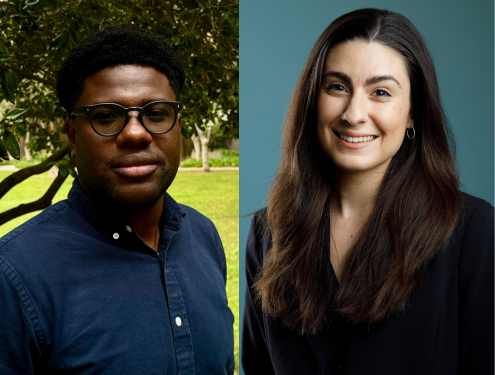NEWS
 Keeping California children cool: strategies for safe schools and homes
Keeping California children cool: strategies for safe schools and homes
New UCLA report highlights actionable solutions for legislators to protect kids from heat.
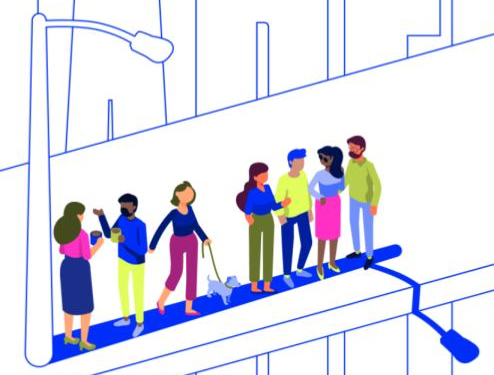 L.A.’s fiercest rivals — USC and UCLA — team up to cool the region ahead of 2028
L.A.’s fiercest rivals — USC and UCLA — team up to cool the region ahead of 2028
ShadeLA aims to expand urban tree canopy and shade infrastructure, building heat resilience for Angelenos.
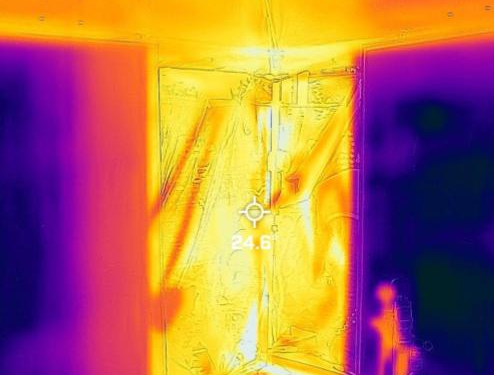 Beyond shade: UCLA researchers improve radiant cooling to make outdoor temperatures feel cooler
Beyond shade: UCLA researchers improve radiant cooling to make outdoor temperatures feel cooler
The approach uses low-cost, scalable, transparent and infrared-reflective surfaces and hydronic panels.
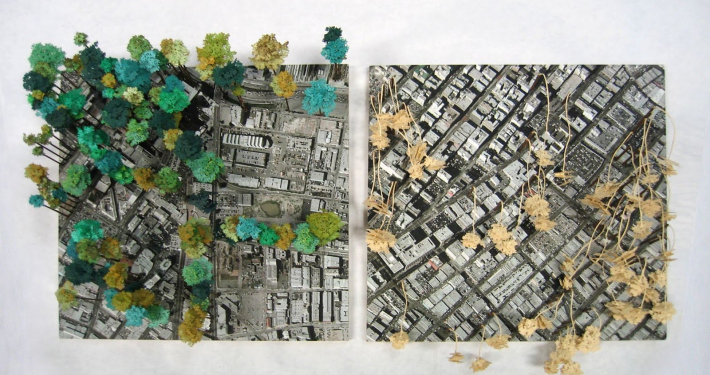 Turning data into dialogue: Luskin Center for Innovation-inspired art exhibit brings shade equity to life
Turning data into dialogue: Luskin Center for Innovation-inspired art exhibit brings shade equity to life
Roots of Cool: A Celebration of Trees and Shade in a Warming World, a new exhibition running from July 12 to October 12 at Descanso Gardens, brings shade equity to life through a multisensory art experience.
 National shade map from UCLA and American Forests launched to combat deadly urban heat
National shade map from UCLA and American Forests launched to combat deadly urban heat
This new tool pinpoints where shade is lacking across 360-plus cities and towns.
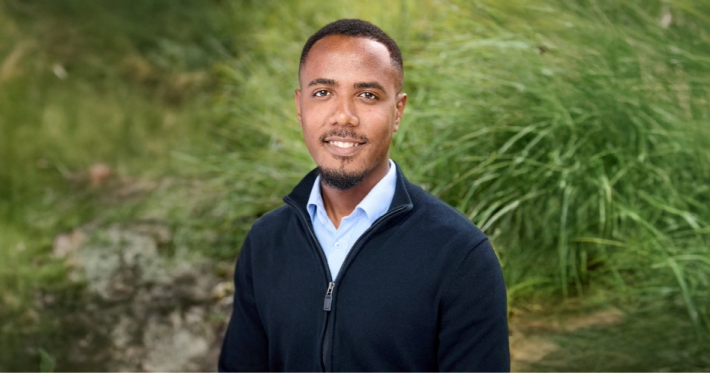 Welcome Jean Claude, our new data scientist and associate project manager
Welcome Jean Claude, our new data scientist and associate project manager
Learn more about our newest team member and his role.
 The Luskin Center for Innovation-based Center for Heat Resilient Communities is now accepting applications
The Luskin Center for Innovation-based Center for Heat Resilient Communities is now accepting applications
The Center will engage and support 10 communities and tribal entities in determining the best strategies for local heat mitigation and management.
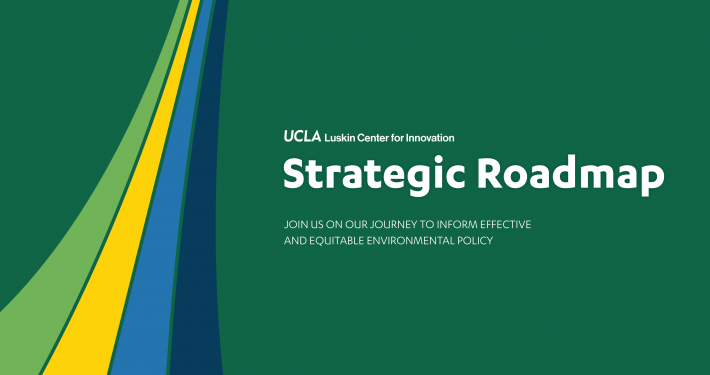 UCLA Luskin Center for Innovation releases Strategic Roadmap
UCLA Luskin Center for Innovation releases Strategic Roadmap
Journeying through 15 years of impact, our priorities for the next few years, and opportunities to partner
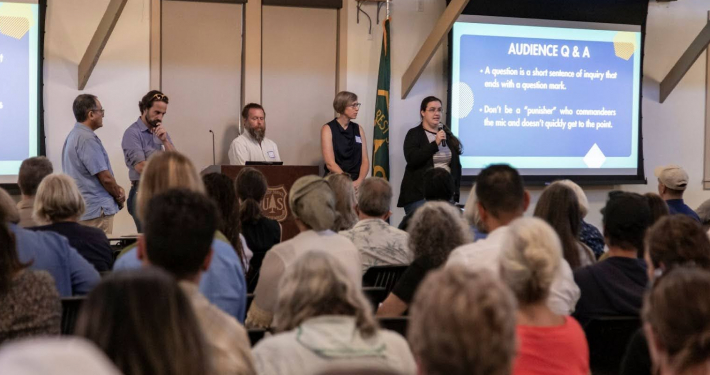 The Luskin Center for Innovation co-hosts the first-ever Southern California urban forest equity symposium
The Luskin Center for Innovation co-hosts the first-ever Southern California urban forest equity symposium
With more than 170 researchers, practitioners, community members, and representatives from government and nonprofit organizations
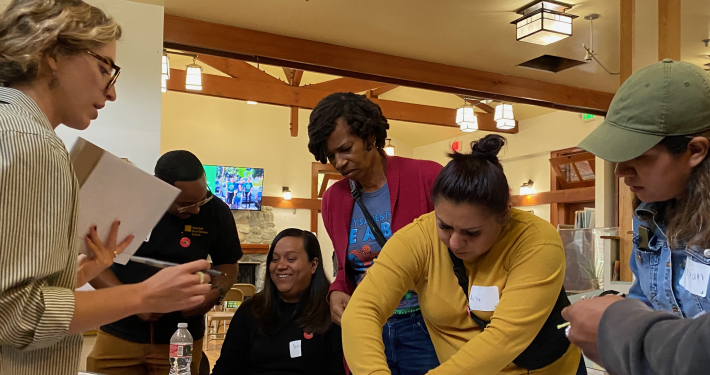 The Luskin Center for Innovation co-develops decision-making framework and toolkit that centers equity in tree planting
The Luskin Center for Innovation co-develops decision-making framework and toolkit that centers equity in tree planting
To help address historic underinvestment and protect against extreme heat
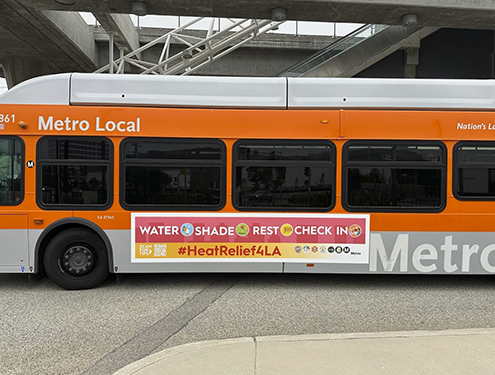 Effectively communicating about heat risk requires deep community engagement
Effectively communicating about heat risk requires deep community engagement
To reach heat-impacted communities, LCI report recommends heat communicators combine outreach strategies into targeted campaigns.
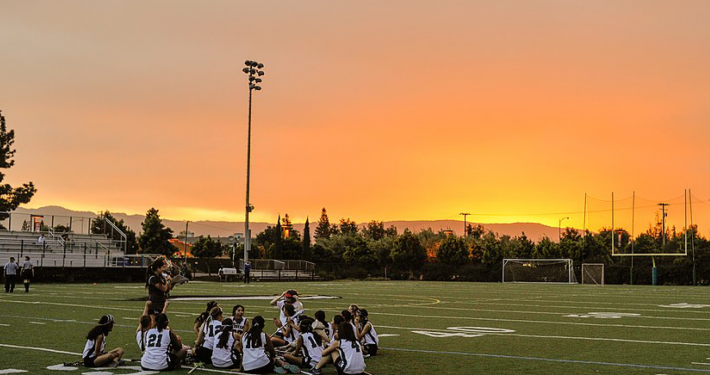 Harker School Staff Photographer / Wikimedia Commons
Researchers equip policymakers to protect students from extreme heat
Harker School Staff Photographer / Wikimedia Commons
Researchers equip policymakers to protect students from extreme heat
The Luskin Center for Innovation releases fact sheets and visuals to inform policy and funding decisions for heat-resilient K-12 schools
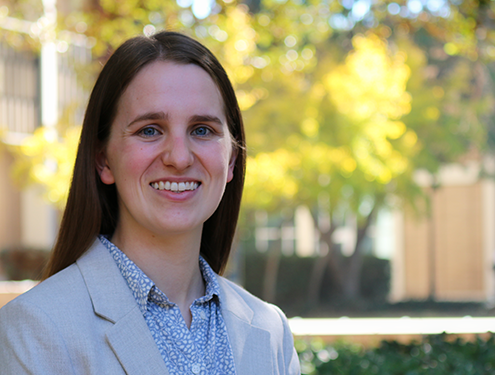 Welcome to our new associate project manager, Lauren Dunlap
Welcome to our new associate project manager, Lauren Dunlap
Learn more about her research at the nexus of energy justice and climate adaptation
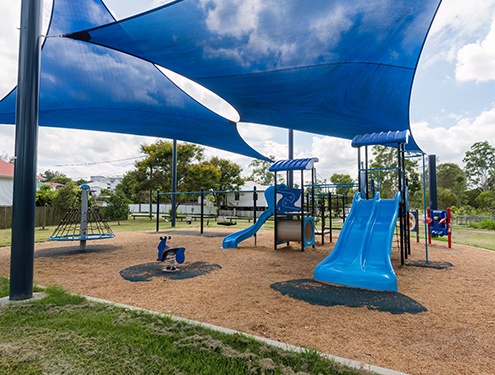 Luskin researcher and partners publish Nature Commentary defining shade deserts and ways to eliminate them
Luskin researcher and partners publish Nature Commentary defining shade deserts and ways to eliminate them
Shade is an essential solution to reduce health disparities exacerbated by extreme heat
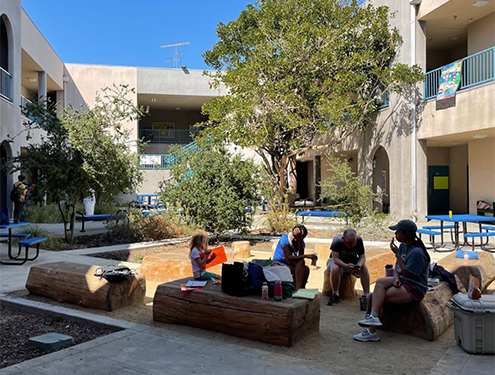 V. Kelly Turner / Luskin Center for Innovation
California’s K-12 education system is under-prepared for rising temperatures
V. Kelly Turner / Luskin Center for Innovation
California’s K-12 education system is under-prepared for rising temperatures
Heat makes it harder for students to learn and for teachers to teach. Previous research supported by the UCLA Luskin Center for Innovation quantified how these effects exacerbate educational and racial inequalities.
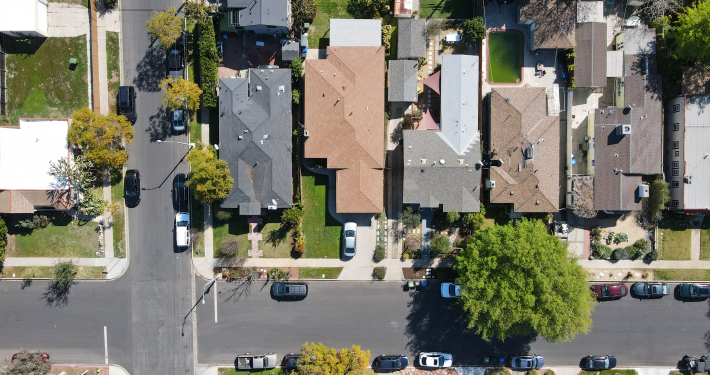 Thomas De Wever / iStock
UCLA researchers study impacts of streets on urban heat
Thomas De Wever / iStock
UCLA researchers study impacts of streets on urban heat
New research finds shade, such as from trees, to be the most effective strategy to cool hot city streets
 Celebrating our impact in 2022
Celebrating our impact in 2022
Meet our new faculty director and explore our actionable research for a sustainable future in our new Impact Report
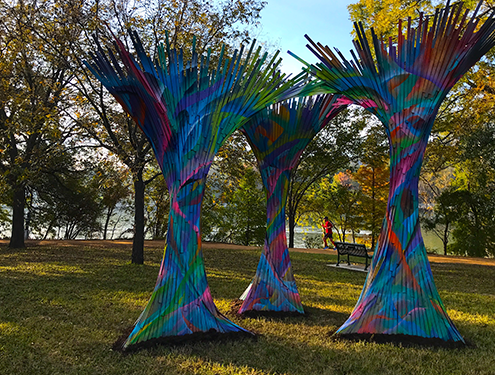 Federal park funding reaches underserved communities — but more can be done
Federal park funding reaches underserved communities — but more can be done
Research from UCLA and The Wilderness Society finds that with a few key improvements, federal park funds can bring outdoor recreation to more communities
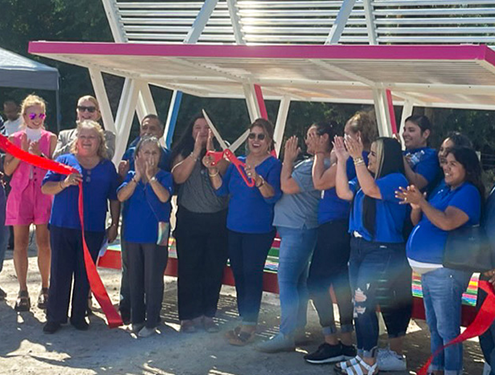 New shade shelter prototype aims to keep transit riders cool
New shade shelter prototype aims to keep transit riders cool
Community-driven research strives to prevent heat-related illnesses
 Heat waves aren’t going anywhere. Here’s how we can prepare.
Heat waves aren’t going anywhere. Here’s how we can prepare.
UCLA’s V. Kelly Turner takes a multi-pronged approach that emphasizes equitable solutions to this dangerous problem
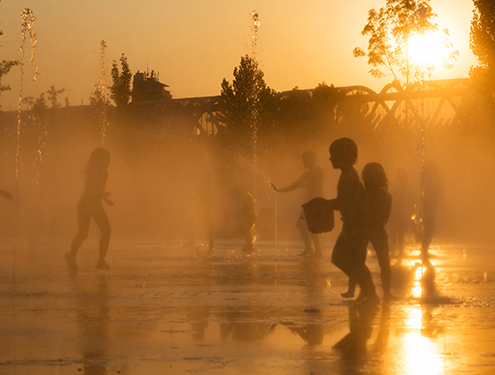 Most major U.S. cities are underprepared for rising temperatures
Most major U.S. cities are underprepared for rising temperatures
A UCLA-led analysis highlights gaps in municipal planning for often-deadly rising temperatures
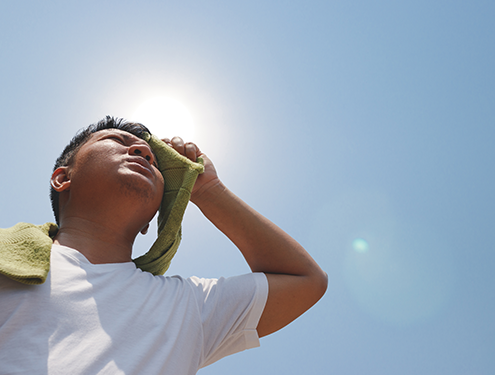 California needs a people-focused and equity-driven approach to address extreme heat
California needs a people-focused and equity-driven approach to address extreme heat
New research aims to further inform the state’s heat planning, legislative and budget decisions
 More Nuance Is Needed to Accurately Measure Extreme Heat in Cities
More Nuance Is Needed to Accurately Measure Extreme Heat in Cities
A research team led by V. Kelly Turner calls for more comprehensive urban heat data — an essential element of any strategy to cool cities down.

